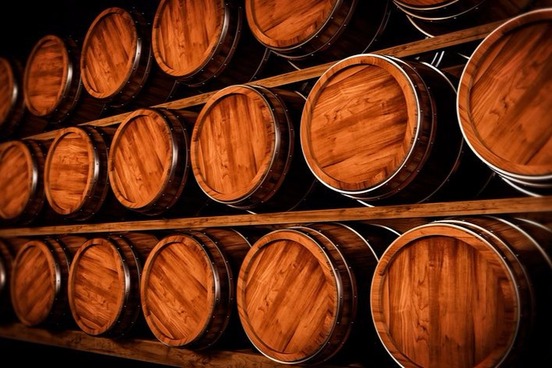
Wright
The noun wright is defined as "a worker skilled in the manufacture especially of wooden objects." The Old English wryhta means "worker" or "maker" and is related to wrought, which once served as the past participle of our verb work.
Among the many Wrights in history were brothers Orville and Wilbur, who were known for making a few things that got off the ground.
As a word, wright is used chiefly in combination to form such compounds as shipwright and wheelwright. A playwright doesn't make things out of wood, but does produce plays for the stage. And words such as cartwright (one who builds carts) and wainwright (one who makes wagons) are themselves common last names, as the woman who voices Bart Simpson (Nancy Cartwright) or the familial singers Loudon, Martha, and Rufus Wainwright can tell you.

Smith
A smith can be any maker but particularly refers to one who works in metals. A blacksmith is usually one who forges iron, while a whitesmith or tinsmith works with tin or other lighter materials. The word smith derives from Old English and is probably a cousin to the Greek word for a wood-carving knife.
Smith is the most common surname in both the United States and the United Kingdom, with notable Smiths including economist Adam, singer Patti, and actress Maggie.

Cooper
A cooper is a person who makes or repairs wooden casks or tubs. The Latin cupa, meaning "cask," barreled through Middle Dutch and Middle Low German to Middle English, where the term for a caskmaker was couper or cowper.
Famous people with the caskmaking trade in their family history include actor Bradley Cooper and TV news host/silver fox Anderson Cooper.

Fletcher
A fletcher is a maker of arrows, from the Anglo-French fleche, meaning "arrow." The term fletching is used for the aerodynamically-designed wings (called fins or vanes) that stabilize an arrow or dart in flight.
For famous Fletchers, the arrow points to Academy Award-winning actress Louise Fletcher, portrayer of Nurse Ratched in the film One Flew Over the Cuckoo's Nest (1975). (Honorable mention: murder-beset fictional writer Jessica.)

Chamberlain
Originally, the "chamber" in chamberlain referred to a sovereign's or nobleman's sleeping chambers. A chamberlain was the servant who guarded or attended to those rooms. The word's meaning expanded to refer to an officer, usually male, that takes care of the household of a sovereign or nobleman.
Whilst Quentin was engaged in these sage reflections, a sort of attendant or chamberlain of the inn informed him that a cavalier desired to speak with him below.
— Walter Scott, Quentin Durward, 1823
Famous Chamberlains in history include British Prime Minister Neville (served 1937-1940) and basketball star Wilt.

Sexton
A sexton is a caretaker of a church or graveyard. The duties of a sexton traditionally might include ringing the bell or digging graves for burial.
The word derives via Middle English and Anglo-French from the Medieval Latin sacristanus. The related job sacristan, from the same root, describes one who cares for the sacred vessels and equipment used by the church.
The most famous person named Sexton might be the American poet Anne Sexton (1928-1974), who, appropriately, tucked the image of the graveyard into several of her poems ("Gone, I say and walk from church, / refusing the stiff procession to the grave, / letting the dead ride alone in the hearse.")

Ward
A ward was originally a guard or watchman, though now we are more likely to see the word applied to someone being guarded or protected (such as a minor in the care of a guardian). The word is ultimately of Germanic origin. Guard and ward are among a number of closely related word pairs that start with g and w (e.g., guarantee/warranty).
Ward was the maiden name of the mother of actor Bert Gervis, who is known for portraying Batman's sidekick Robin on TV in the 1960s under the name Burt Ward.

Webster
Webster is the former term for a weaver, derived from the Old English webbestre (applied to women). The verb webbian meant "to weave or devise" and is naturally the root for our word web.
Famous Websters throughout history include Daniel, the longtime congressman and Secretary of State from New Hampshire, and some 19th-century guy named Noah who wrote books in Connecticut.
MORE TO EXPLORE: 10 Words for People Who Are Bad At What They Do





